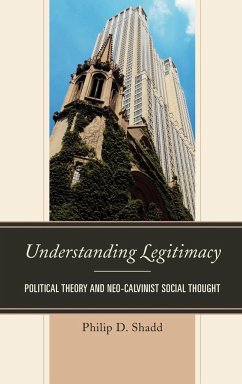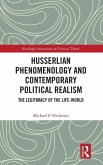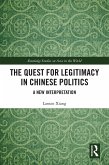In recent years, political theorists have increasingly focused on the question of legitimacy rather than on justice. The question of legitimacy asks: even if legal coercion falls short of being perfectly just, what nonetheless makes it morally legitimate? Yet legitimacy remains poorly understood. According to the regnant theory of justificatory liberalism, legitimate legal coercion is based on reasons all reasonable persons can accept and is conceived in terms of a hypothetical procedure. Philip Shadd argues that this view would effectively de-legitimize all laws given its requirement of unanimity; it wrongly suggests that basic rights are outcomes of political procedures rather than checks on such procedures; and it is paternalistic as it substitutes hypothetical persons for actual persons. Where should theorists turn? Shadd's perhaps surprising proposal is that they turn to neo-Calvinism. Founded by the Dutch politician, theologian, and social theorist, Abraham Kuyper (1837-1920), neo-Calvinism is a specific variant of Reformed social thought unique for its emphasis on institutional pluralism. It has long theorized themes such as church-state separation, religious diversity, and both individual and institutional liberty. Out of this tradition Shadd reconstructs an alternative framework for legitimacy. The central neo-Calvinist insight is this: legitimacy is a function of preventing basic wrongs. The book develops this insight in terms of three ideas. First, the wrongs that legitimate regimes must prevent are violations of objective natural rights. Second, these rights and wrongs presuppose some or another view of basic human flourishing. Third, Shadd suggests we understand these rights and wrongs as being exogenous. That is, they are not social constructions, but arise outside of human societies even while applying to them. While based in a religious tradition of thought, religious intolerance is no part of this neo-Calvinist theory of legitimacy and, in fact, runs contrary to neo-Calvinism's distinctive institutional pluralism. But only by theorizing legitimacy along the lines Shadd suggests can we make sense of convictions such as that some legal coercion is legitimate even amidst disagreement and that paternalistic coercion is illegitimate. Neo-Calvinism offers a better framework for understanding legitimacy. This book will be of particular interest to secular theorists focusing on themes of political legitimacy, public reason, justificatory (or political) liberalism, or the work of John Rawls, and to religious theorists focused on theories of church-state separation, institutional pluralism, and religious diversity.
Hinweis: Dieser Artikel kann nur an eine deutsche Lieferadresse ausgeliefert werden.
Hinweis: Dieser Artikel kann nur an eine deutsche Lieferadresse ausgeliefert werden.








